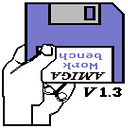What I’ve learned from fatherhood
Learning
Small human beings learn how to live in the world by mimicking other human beings. Power over another human being, as a parent has over a child, does not mean that you are obeyed as much as that you are mimicked. Small human beings are incapable of determining which behaviors they should mimic so they mimic all of them. But the parent does not have total control over his or her own behaviors, so some bad behaviors will also be mimicked.
Opinions
Small human beings have incredibly powerful opinions about many things. When presented with pink pants, if they do not want pink pants right now, they may throw themselves upon the floor. They may have wanted pink pants yesterday, but not today. The same reaction can be evinced from grilled-cheese sandwiches which previously were met with greasy smiles of joy and much quiet chewing. Small humans have opinions even before they are capable of communicating those opinions using spoken language. Opinions are obviously a more fundamental component of human experience than language.
Comfort
Small human beings create systems that create and preserve comfort. This might involve a pacifier, or a piece of cloth, or certain patterns of hugging and kissing. Injuries can be presented to larger humans for inspection and kissing. Air kissing is acceptable. It also might involve a minimum of three bunnies, two bears, four monkeys, and two blankets in a crib before sleep can commence. Small human beings need access to their comfort systems if they are to relax and eventually sleep. Soft things are more comfortable than hard things. Discomfort must be acknowledged by larger humans before it can be forgotten.
Planning
But small human beings are bad planners. In high spirits they will toss the things that give them comfort out of the crib, or into the trash. They will throw the food that provides them with nutrition out of the highchair onto the floor, or into the face of the person that is feeding them. They build towers of blocks, then knock them down. It is also wonderful to draw on the walls with crayon, which the Internet suggests can be cleaned with baking soda, which strips the paint, or with mayonnaise, which is insane. It is interesting to build things, but wonderful to throw and break things.
Patience
After they have thrown something onto the floor small human beings will often ask for that thing to be handed back to them, and sob regretfully if they do not immediately receive it. They lack for patience. Of course, the larger humans often lack for patience too. It is often said that children must be taught patience, but of course patience cannot be taught (see Learning, above). Small human beings learn by mimicking and so they learn patience by mimicking patience. Perhaps this means that a larger human being somewhere many thousands of generations back took a long and patient breath as the smaller human being in his or her arms squirmed. Perhaps the smaller human being saw this long and patient breath and internalized it and began to understand. Perhaps all of the patience in the world is a copy of one sigh.
